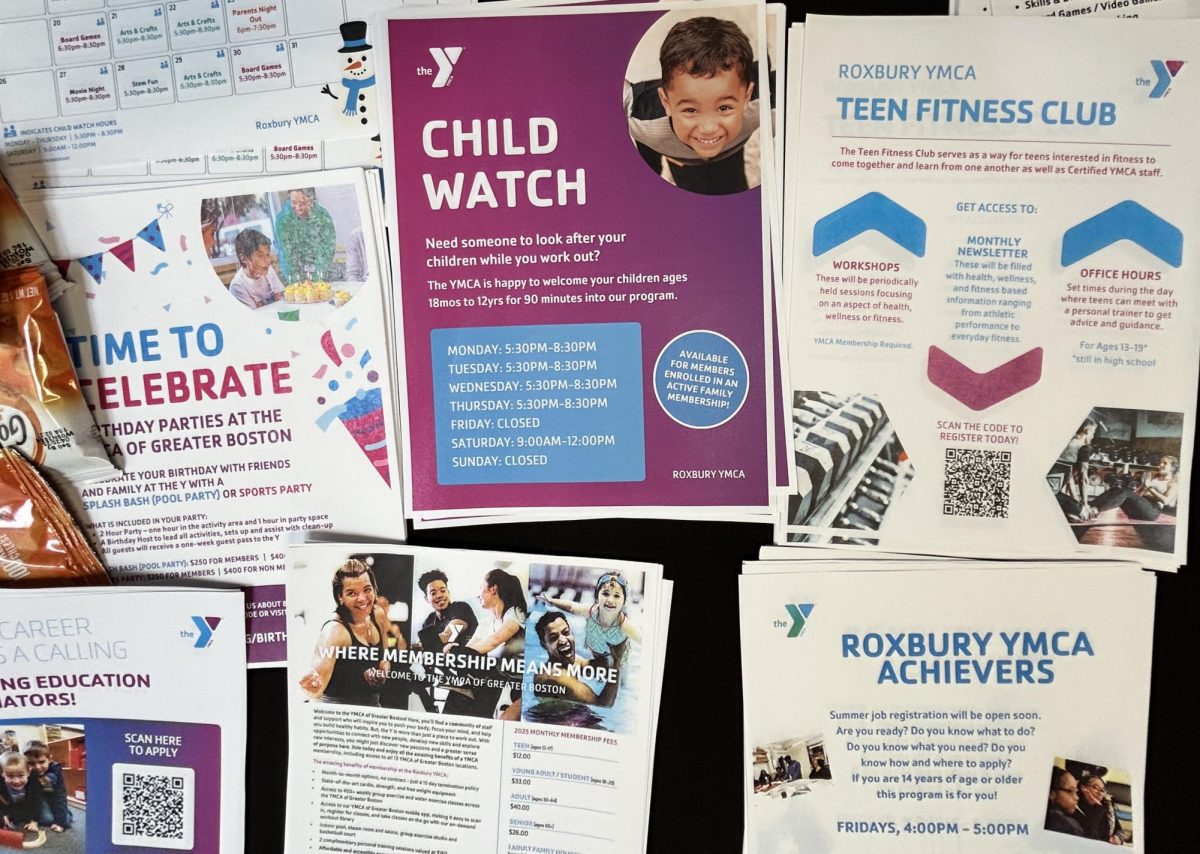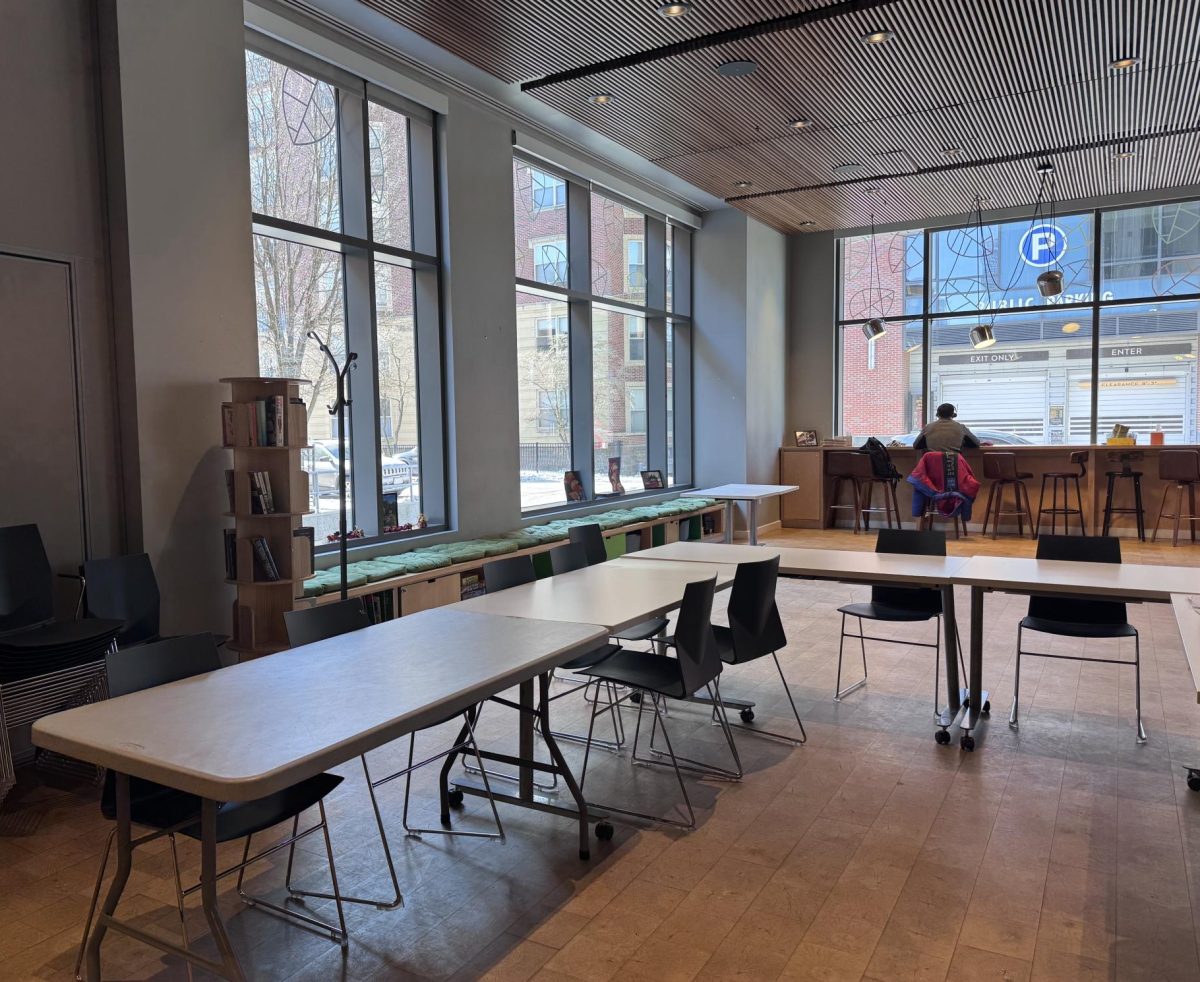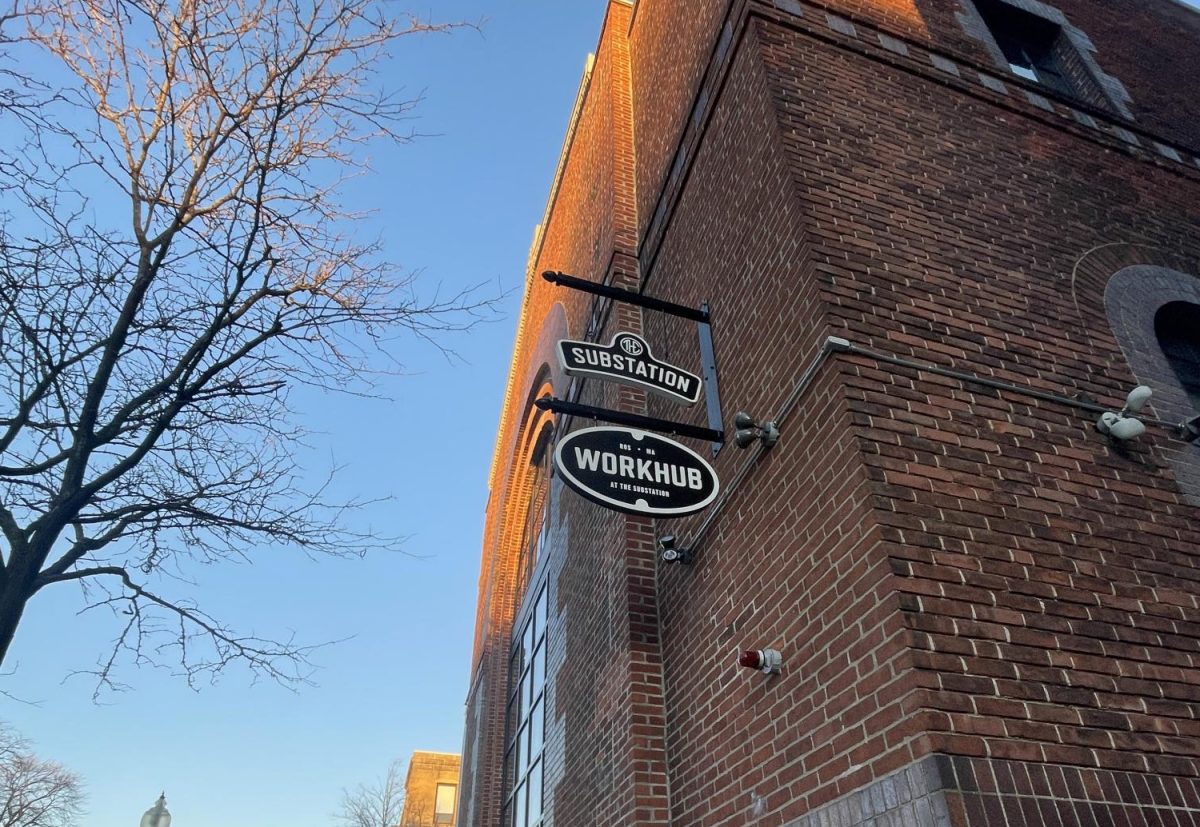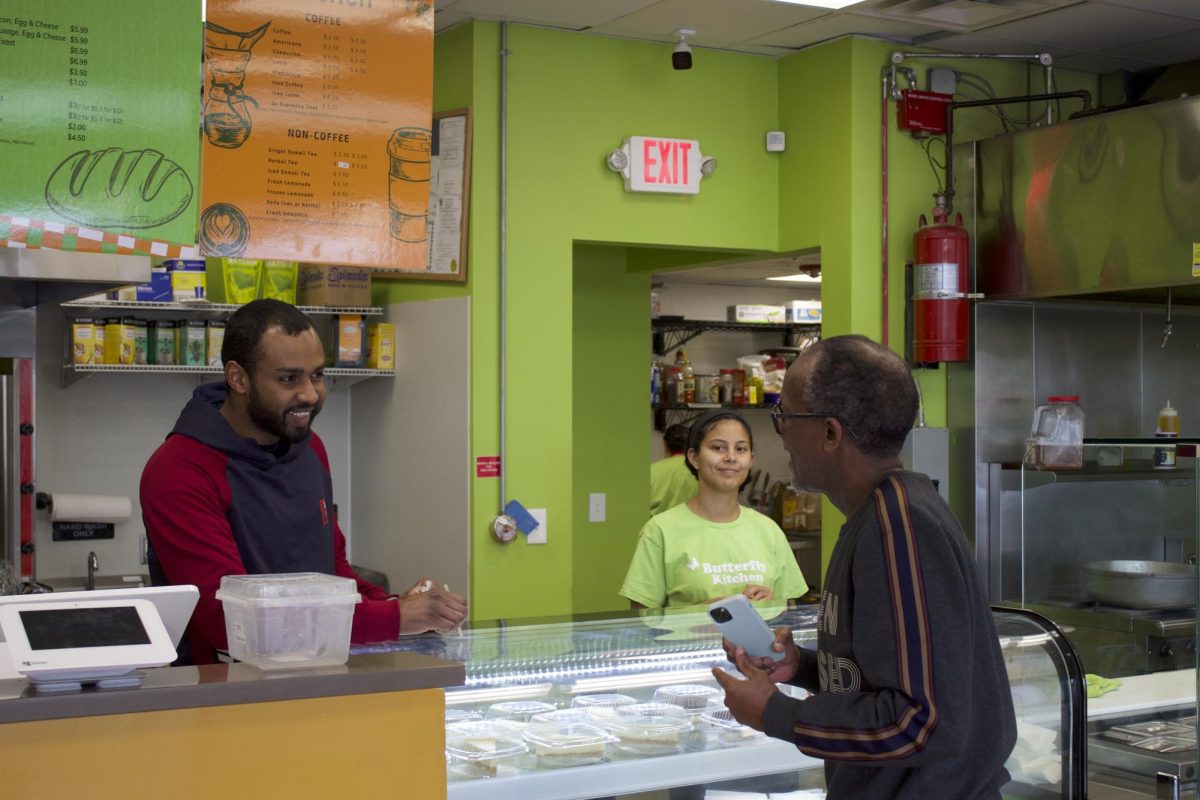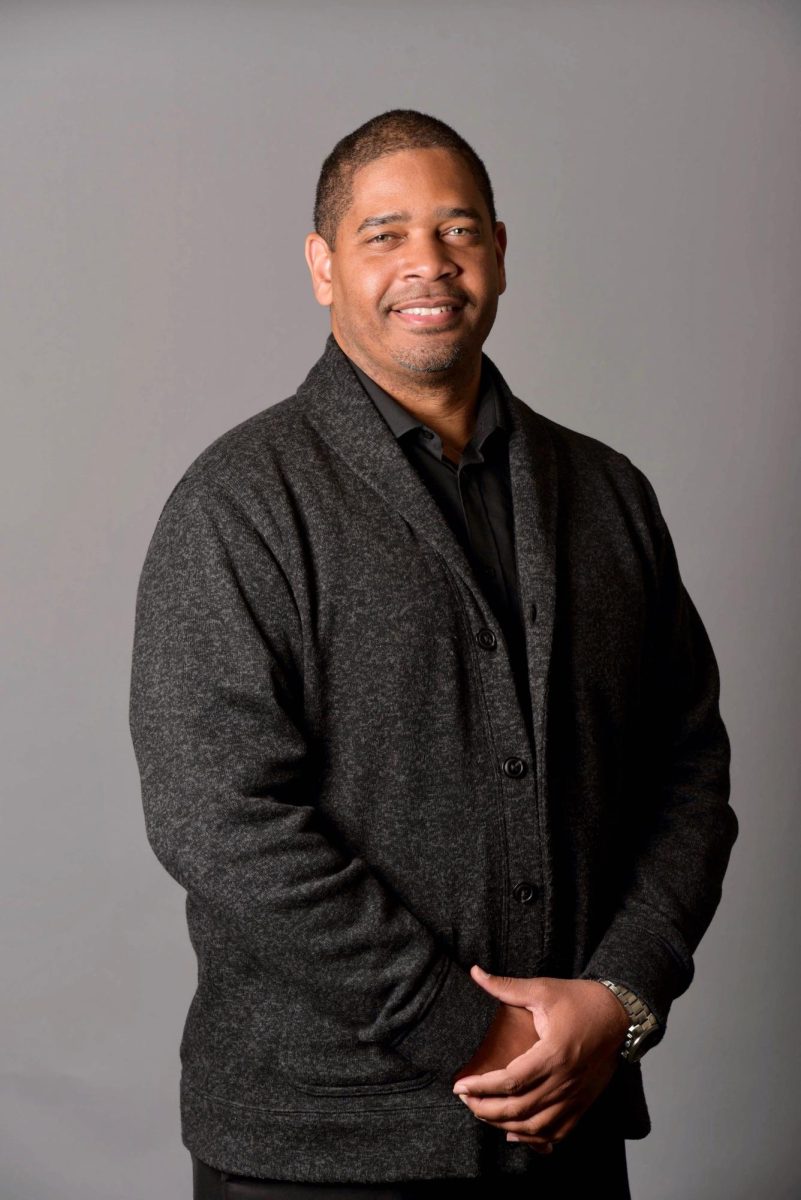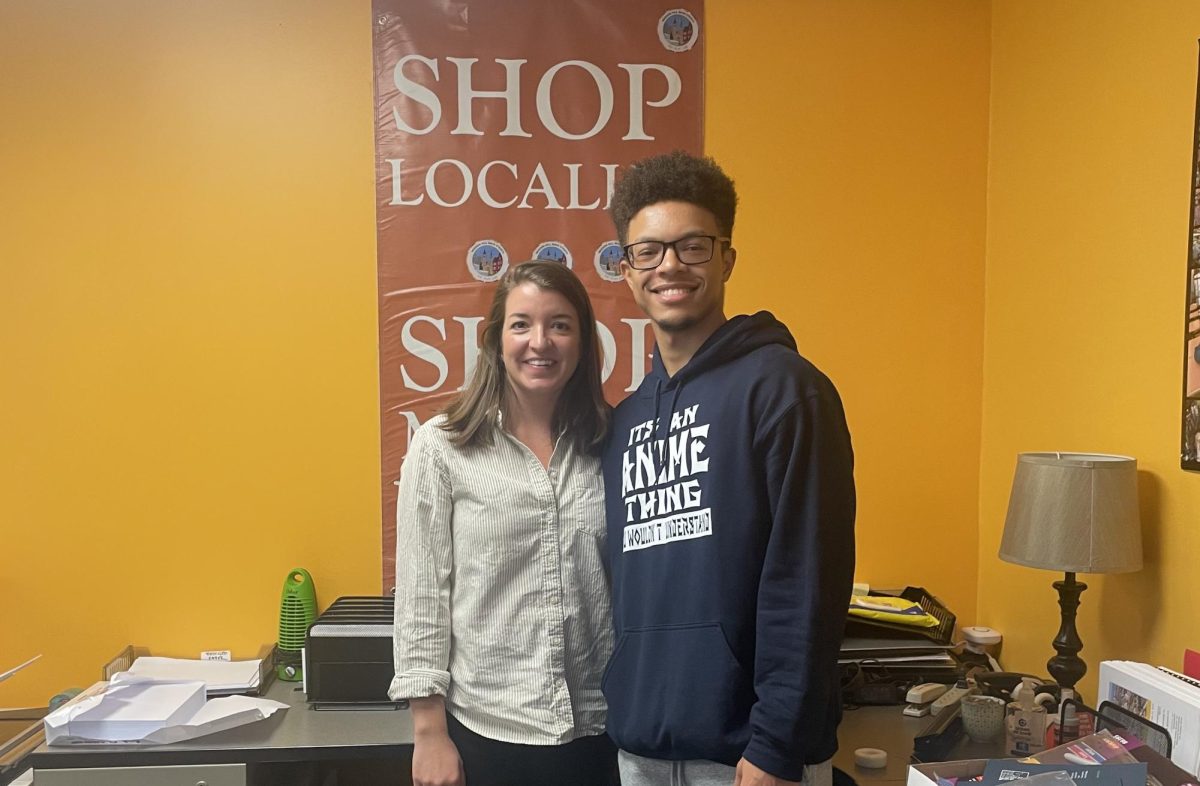Kathy Tallman might be in charge of a $12.5 million expansion of the 90-year-old Coolidge Corner Theatre in Brookline, but the real impact she hopes to see goes far beyond the walls of the beloved movie house.
After about 10 years of planning, Tallman, the executive director of the Coolidge, and the rest of her team are nearing completion of their ambitious expansion, which will include a refurbished lobby, a community engagement center and two new theaters on top of the four existing auditoriums. But Tallman is focused on more than high-resolution projectors and comfy seats. Her goal is to further integrate the surrounding community into the arts to make the non-profit theater a hub for education and inclusivity.
“The Coolidge community is not just these four walls,” she said, gesturing around her spacious office lined with posters signed by movie greats, such as Michael Douglas and Werner Herzog. “The community spreads far beyond this building, and there is so much we can do for it.”
The Scope spoke with Tallman in her office about the Coolidge’s future, the theater’s perseverance through the COVID-19 pandemic, the ongoing expansion and the impact Tallman hopes to see on the community.
This conversation has been edited for clarity and length.
In your time at the Coolidge, what have been some of your finest accomplishments?
Making it through COVID was, in retrospect, an accomplishment. And I sure am grateful that we’re still here. We were just about ready to launch a public campaign for the building and that was when the pandemic happened. We had to put that off for two and a half years, so now we’ve gotten the building to a place where I think it’ll open before the end of the year after so many challenges.
When you were on the board did you always foresee the theater expanding?
Expanding the Coolidge has been in the works for a long time. We needed to do this because we had the space out back. It’s frustrating for everybody, so that was the original intent, and then well let’s build a theater on the top floor. It takes a really, really long time to bring that to reality.
So you mentioned you have $14 million raised so far. What is the current status of the funding? What’s the funding goal?
It’s almost complete. It was $10 million, and that’s why I say it’s almost complete because you just don’t know. Nobody expected the pandemic. Nobody expected the supply chain issues.
What excites you the most about the expansion?
The most exciting part to me — and there are so many exciting parts — is that this expansion will cement us as a major cultural institution grounded in film. We have a great reputation, but there’s so much more we can do. There’s so much more programming we can offer, so probably the most exciting thing is the Education and Community Engagement Center.
What is the Education and Community Engagement Center?
It’s a revenue opportunity, but it’s also mission-driven, so we hired a director of education to develop a program for the youth. Most importantly, it’ll involve community engagement, our collaborations with nonprofits and a new curriculum for our classes. The space will also be available for the public to rent, as there are very few spaces in Brookline for that, so we’ll rent the space out for birthday parties and private screenings. It will hold 50-60 for a classroom and 75-80 for a reception. There’s a roof deck, so people can hold parties up there too.
Is there anything about the project that makes you a little nervous?
I think a lot of the nerves have been in place for the last three to four years. Until right now and last night, I would not have said we are going to open by the end of the year because there have been so many things you can’t predict. But we have an amazing construction company, Groom Construction, so the elevator is in and then the last big piece is installing the power. Everything was kind of backed up because we were waiting for those, but now that is starting to happen.
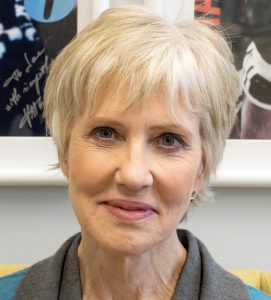
What does the community of Brookline mean to you?
When I moved here over 30 years ago, I didn’t know anybody. So, getting to know the community and getting to know how much people care about it, I care about the Coolidge and then hopefully expanding our reach to the Boston community means a lot to me on an individual level.
Do you foresee any new events coming with the expansion?
I think we’ll have more opportunities. We collaborate right now with around 25 to 30 different organizations. Right now we work with GlobeDocs and Boston Jewish Film Festival. We’d like to do more with like West Roxbury, the Roxbury Film Festival, but we don’t have the screen time so I think we can use the space to certainly provide more to other people and to other organizations.
Coolidge is such a beloved landmark to the people of Brookline. How do you see the expansion changing the public’s perception of it?
One of the things that you see in terms of having a community here is people really feel ownership — as they should. The community saved the theater in 1989 when the former owner, Justin Freed, put the building up for sale. The community gathered to raise money and raise awareness. I know a couple that got married who met through that process. People really feel like they’re part of this community, and they are.
How do you see the expansion — the refined theater — impacting Coolidge’s legacy as a landmark of both Brookline and of Boston?
While we’re based in Brookline, we perceive ourselves as a Boston-based cultural institution. We want to offer our customers the amenity of being able to have a more civilized experience coming in the door. I think that it will cement our role as a major cultural institution and help us expand our reach beyond Brookline, too.
What is a community engagement center doing in a movie theater?
We provide a lot of space to other organizations, so people really look to the Coolidge as a place that is also a big-time economic anchor. One thing we want to do that will help with that engagement center is tying it in with education too. It’s all about gathering people together so that people can share views time with each other and feel like they’re collectively part of a bigger entity.



